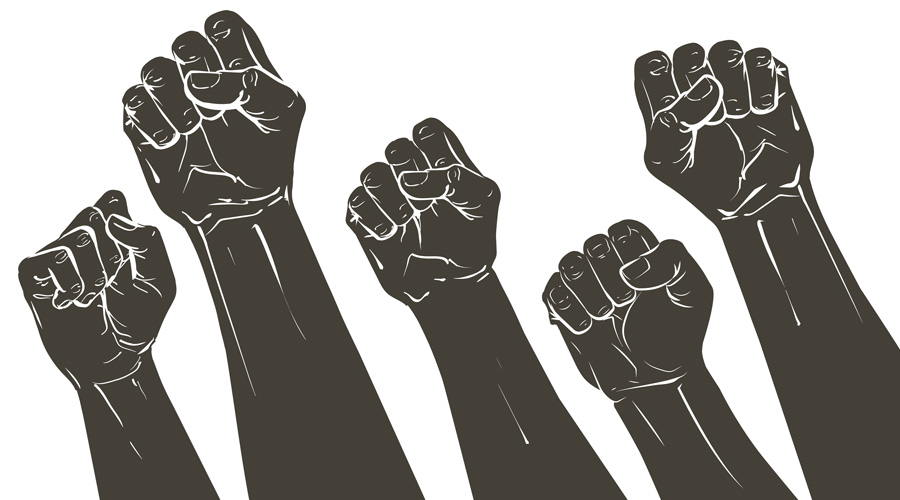Hindutva activists on Tuesday demonstrated against a 90-year-old tradition of the recitation of Quranic verses at a temple festival in Hassan district, at a time BJP leaders and Sangh parivar outfits have been trying to polarise voters ahead of the Assembly polls.
Members of the Bajrang Dal and the little-known Kesari Yuva Pade (Kesari Youth Army) protested near the 12th-century Chennakeshava (Vishnu) temple in Beluru town, some 220km from Bangalore, after government and temple authorities ignored their demand to scrap the Quran recital.
This year’s Quran recital, which kicks off the two-day annual Rathotsava or chariot festival, is scheduled for April 4.
“We had submitted memorandums to the festival organising committee, executive officer of the state Muzrai (religious affairs) department and the local tehsildar, explaining our objection to the recital of Quranic verses at the Hindu temple festival. But none of them responded,” Bajrang Dal state coordinator Raghu Sakleshpura told The Telegraph on Tuesday.
A Muzrai department document says, without elaborating, that the Quran recital was started in 1932 as a nod to communal amity.
“Congress governments then made it an integral part of the festival itself, giving the Quran recital so much primacy,” Raghu said. “Our question is, will Muslim religious places allow Hindu chants?”
He added: “Alauddin Khilji’s general plundered the temple in the 14th century. The Congress governments ignored this fact to encourage the Quran recital.”
The festival attracts devotees from across the state, with the Quran recital seen as a mark of Hindu-Muslim unity. Residents of the neighbourhood, irrespective of their faith, assume responsibility for the various events during the festival.
The temple administrator had last year sought the Muzrai department’s opinion on the continuation of the Quran recital against opposition from Hindutva organisations.
The then department commissioner, Rohini Sindhuri, had directed the temple to continue the ritual citing Section 58 of the Hindu Religious Institutions and Charitable Endowments Act, which prohibits any interference in temple practices.
A resident of a neighbouring village, Kazi Syed Pasha, recites the Quranic verses standing in front of Lord Chennakeshava’s chariot — as his ancestors had done before him — in the presence of thousands of Hindu devotees.
Commissioned by King Vishnuvardhana in AD 1117, the temple was built over 103 years. It bears Hindu, Buddhist and Jain influences and is considered an architectural attraction. The shrine later came under the control of the Vijayanagara empire.
Hindutva outfits have been running anti-minority campaigns and BJP leaders making divisive remarks in Karnataka despite party veteran B.S. Yediyurappa claiming that Prime Minister Narendra Modi had asked the party to take Muslims into confidence.
BJP leaders have been speaking out against “love jihad” while Sangh parivar groups have barred Muslim vendors from temple festivals and sought bans on halal food and mosque loudspeakers.
A classroom ban on the hijab at government educational institutions has led to a legal battle that is now before the Supreme Court.










